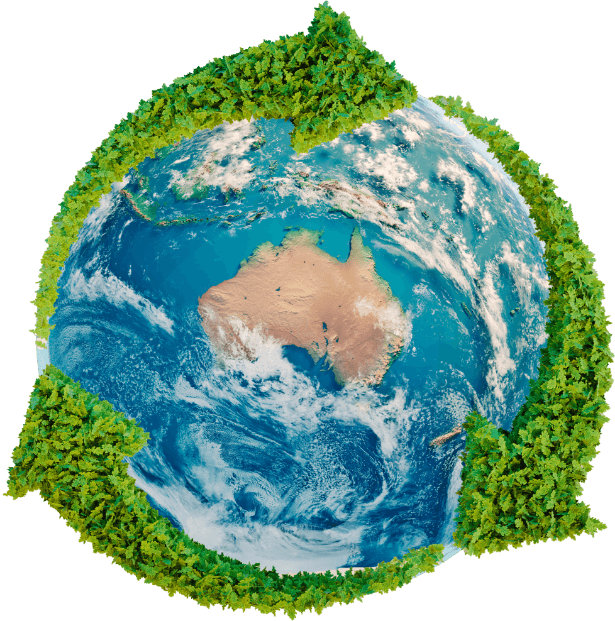Recovery
Immediate responses to the impacts of extreme events such as flood and bushfire are necessarily focussed on the health and wellbeing of affected communities. Immediate recovery can be concerned with the physical and mental health and well-being of communities, the mitigation of impacts on the natural environments and the rebuilding of housing, building and essential infrastructure. Short term actions need to be considered as part of a continuing process of adaptation and long term building of resilience. In this context, effective approaches to recovery need to incorporate longer term assessments of climate change risks, and the capacity for interventions that can reduce the impacts of future risks.
Australia has strong climate change science and has experienced multiple natural disasters this century which provide a powerful basis for recovery design to meet both short and longer term goals. This section covers the research and education across the University of Canberra contributing to the ongoing identification and development of recovery responses and actions at the international, national, sub national and local scale.

Leigh Sullivan
DVC Research and Innovation
Research and Innovation

Rachel Davey
Director, Health Research Institute
Faculty of Health

Alison Wain
Assistant Professor
Faculty of Arts and Design

Tracy Ireland
Director, Centre of Creative & Cultural Research
Faculty of Arts and Design

Hitomi Nakanishi
Associate Professor
Faculty of Arts and Design

Ross Thompson
Associate Professor
Faculty of Arts and Design

Petra Buergelt
Associate Professor of Psychology
Faculty of Health

Barbara Norman
Professor of Urban Planning
Faculty of Arts and Design

Charles Lemckert
Head of School - Design & Built environment
Faculty of Arts and Design

Douglas Paton
Adjunct Professor
Faculty of Health

Janine Deakin
Executive Dean
Faculty of Science and Technology

Barbara Pamphilon
Research Professor
Faculty of Education

Lain Dare
Director, Institute for Governance & Policy Analysis
Faculty of Business, Government and Law

Saeed Banihashemi
Assistant Professor in Building & Construction Management
Faculty of Arts and Design
Civic participation through environmental volunteering: Increasing community collaboration in responding to climate change
Research on citizen participation in response to climate change has predominately focused on individual behaviour change and barriers to participation (Moser & Ekstrom, 2010; Whitmarsh, Seyfang, & O’Neill, 2011; Wibeck, 2014;. This research focus fails to address that people’s actions arise within complex, multi-level and multi-dimensional interdependent interactions at individual, community and broader social and ecological system levels (Buergelt & Paton, 2014). To develop transformative responses in urban climate change adaptation it is necessary to understand how people, individually and collectively, make sense of, make decisions about, and seek to act in response to, the uncertain and evolving consequences of climate change and uncover how power plays a role as citizens seek to be active participants in creating change for sustainability. The most commonly recognised act of civic participation is volunteering and those who volunteer in environmentally focused, community-led groups present a rich cohort to address these gaps. Through environmental volunteering people work with a shared vision across sectors through a range of actions such as education, activism, restoration, monitoring and sustainable living, to maintain or effect change to their local areas (Huq & Burgin, 2016). By examining those ‘already acting’ research can address questions to identify the psychological and contextual elements of local systems and factors and processes that support citizens to participate in governance and contribute to urban sustainability. These questions necessitate a research design capable of capturing the dynamic processes in people’s experiences as volunteers. A methodological framework of action research, grounded theory and ethnography has been developed that provides methods that are is robust and capable of capturing the complexity in people’s experiences and develop theory that will contribute to transforming cross-sector governance practices in sustainable urban climate change adaptation.
UC Institute/Centre/Faculty: FoH/CDU
Funding Agency: Charles Darwin University (PhD)
Funding Amount: N/A
Collaboration/Partner: Charles Darwin University, Massey University (NZ)
Project Lead: Rachel Tumminello (PhD)
Project Team Members: A/Prof Petra Buergelt, Adjunct Prof Douglas Paton, Dr Emma Hudson
Start date: N/A
End date: 2022
“Waka Ngurrkanhayngu: Regenerating the existence of life”: Reducing the risk of natural and social disasters - reviving and strengthening Indigenous law, culture and governance in remote Indigenous communities
There is limited knowledge about how to facilitate the revival and to embed Indigenous strengths-based DRR within community development. Building on a recent scoping project, Indigenous and non-Indigenous peoples will work together two-way to facilitate Galiwin’ku reviving and strengthening their Yol艐u law, knowledges and cultural practices, especially governance, to heal from disasters, (re)build Indigenous capacities that reduce the risk of natural and social disasters, and to increase recognition of the value of Indigenous culture. This project is initiated and led by the community-based research organisation Yalu Mar艐githinyaraw. It represents phase 2 of an overarching research agenda (see figure).
UC Institute/Centre/Faculty: FoH
Funding Agency: AIATSIS
Funding Amount: $199,791.50
Collaboration/Partner: Yalu Mar艐githinyaraw, Charles Darwin University, Menzies School of Health Research, Swineburne University, Australian Securities and Investments Commission
Project Lead: A/Prof Petra Buergelt & A/Prof Elaine 岣好urrpa Maypilama
Project Team Members: Yu艐girr艐a Dorothy Bukulatjpi, Evelyn Djotja , Tanya Yurrranydjlil, Joanne Gemulunuy, Adjunct Prof Douglas Paton, Prof James Smith, Dr Rowan Bedggood, Tahir Ali,Duncan Poulson
Start date: 2021
End date: 2022
Bushfire Recovery
An applied research project to pilot and evaluate a health humanities response design to assist bushfire affected communities to recover from trauma. Creative Arts & Trauma associated with natural disasters, bushfire specific
UC Institute/Centre/Faculty: CCCR/Health
Funding Agency: Hospital Research Foundation
Funding Amount: $185,000
Collaboration/Partner: HRF, Phoenix Australia
Project Lead: AP Jordan Williams
Project Team Members: Tony Eaton, Sam Hinton, A/Prof Petra Buergelt, Jacki Schirmer, Ian Drayton
Start date: October 2020
End date: December 2021


